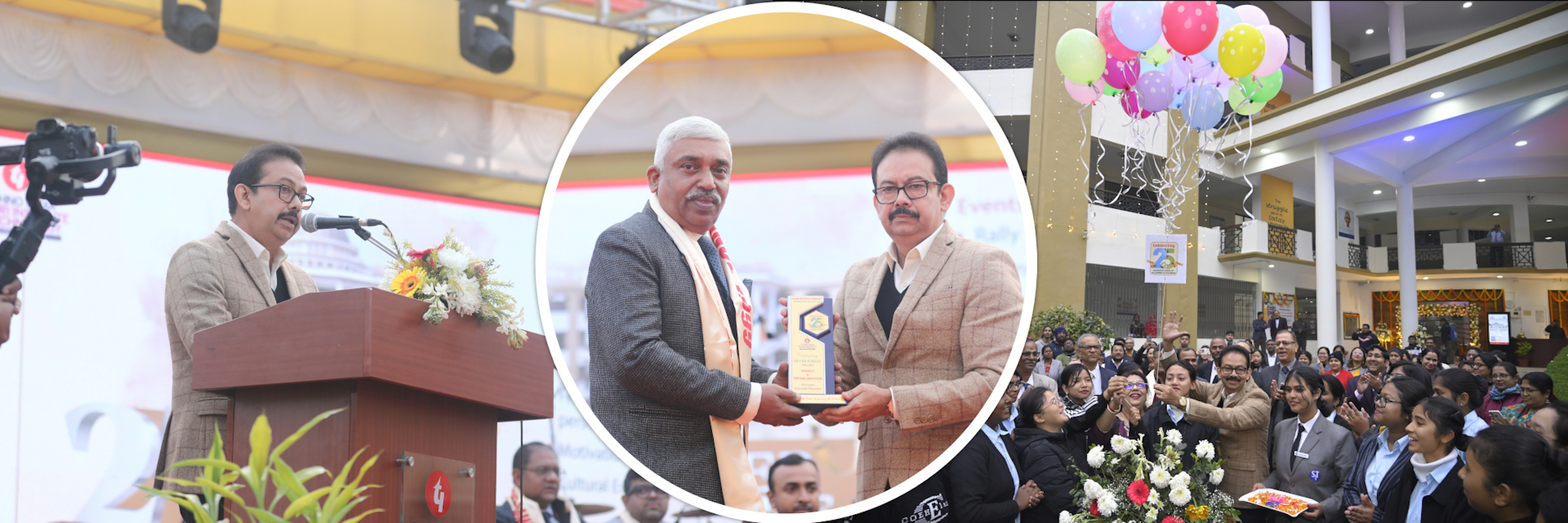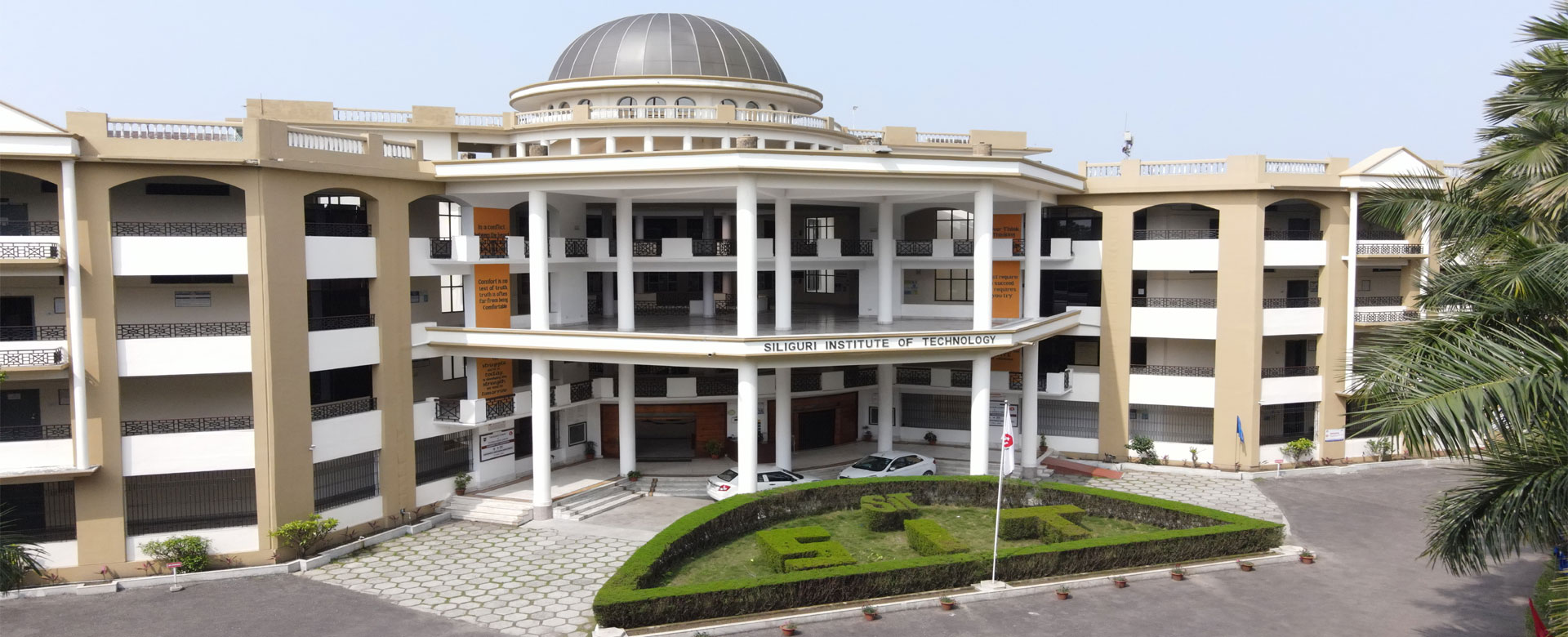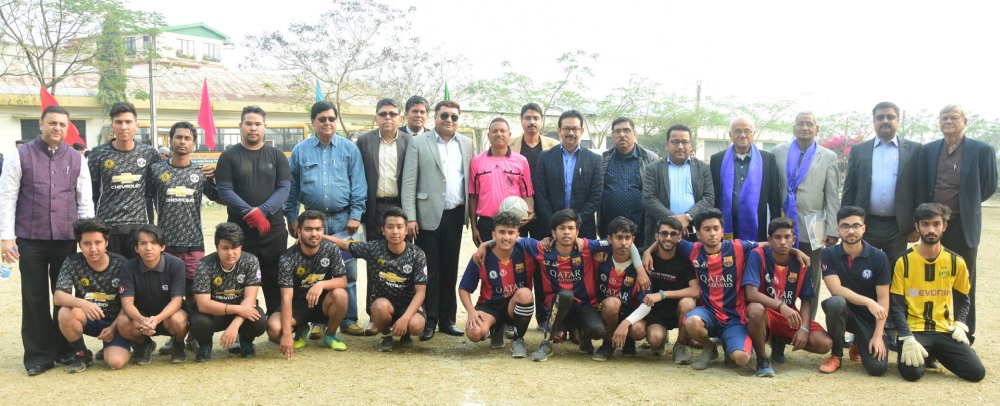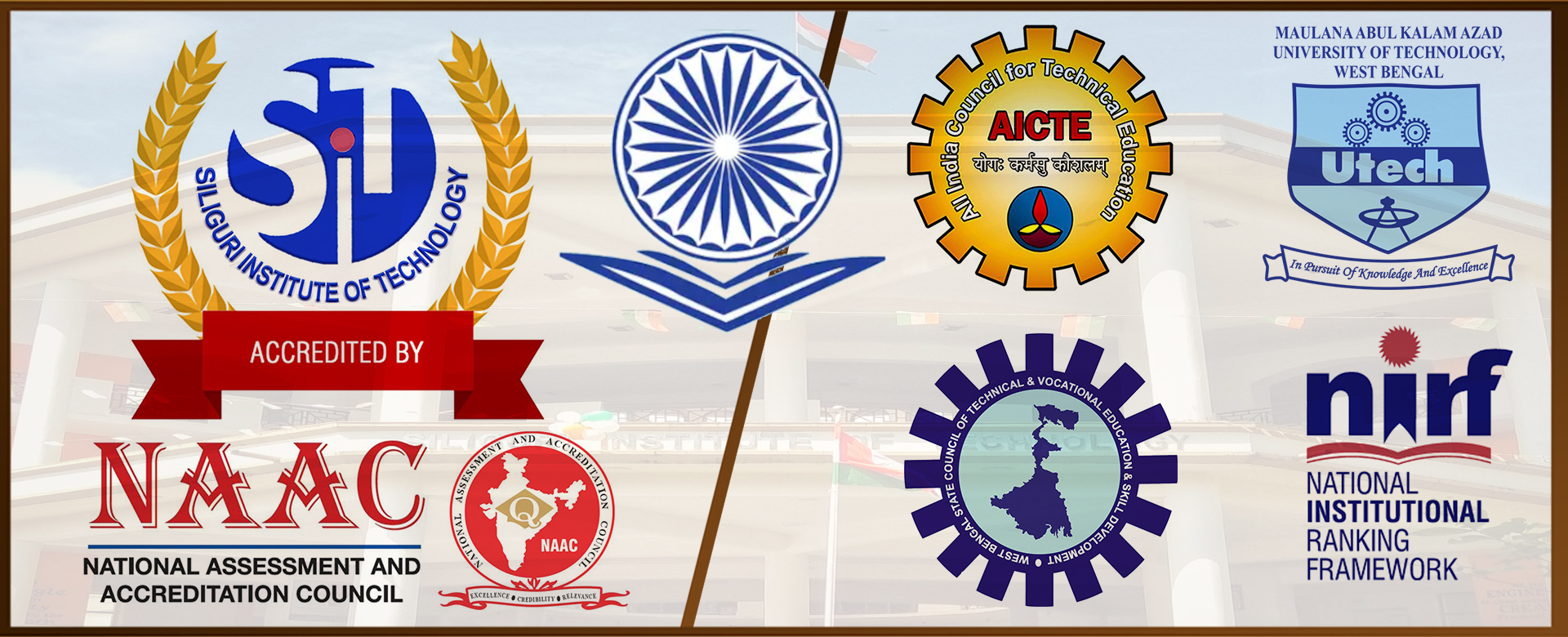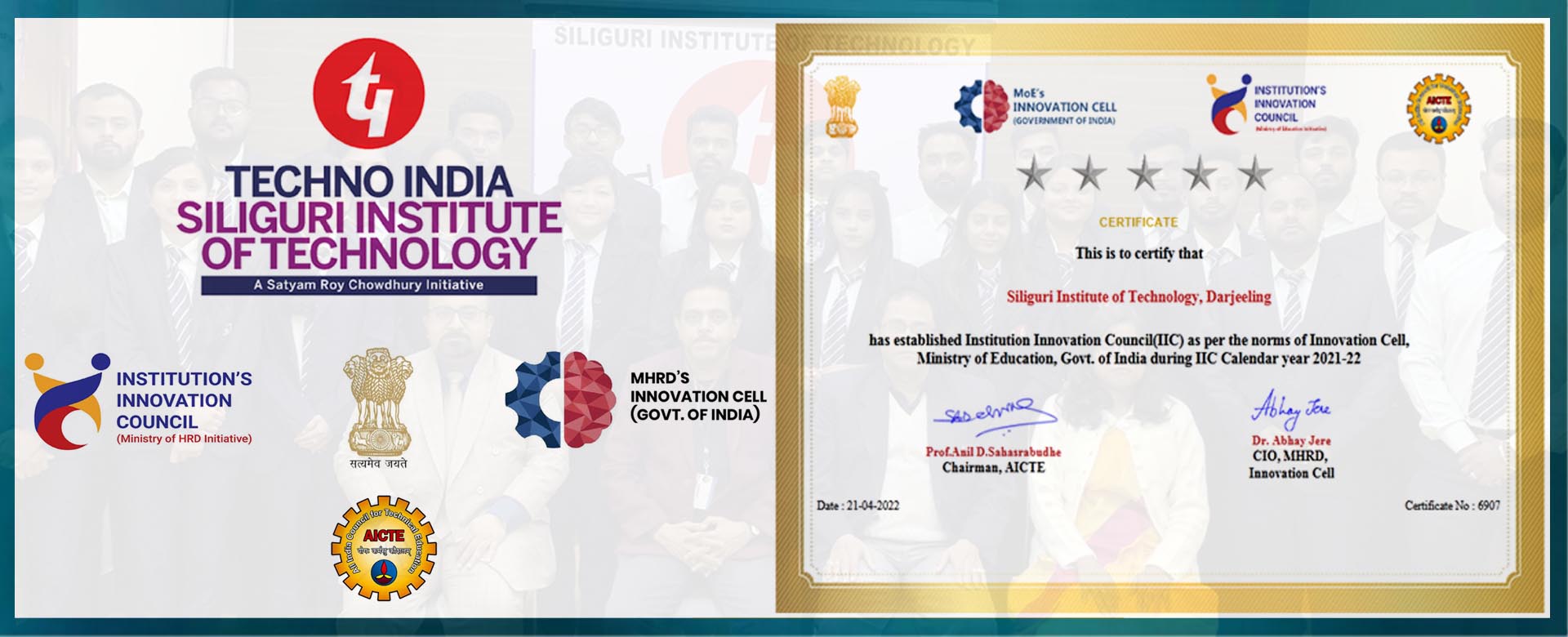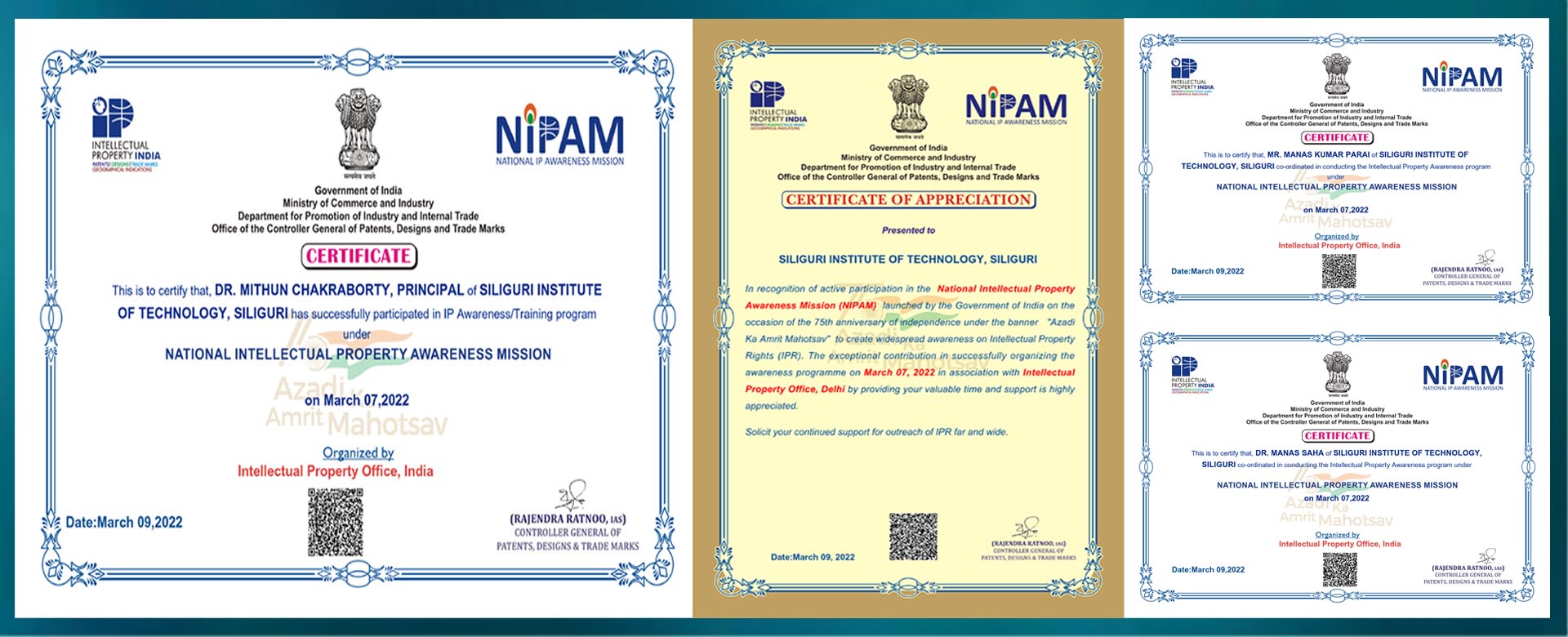ACADEMICS
Click to find out the details about academic activities
NAAC
Explore the NAAC related information of SIT.
ONLINE PAYMENT
Pay your Fees with multiple payment options.
CONTACT US
Click here contact us for any query or assistance.
প্রাক্তনী (Alumni)
Wing for Institute Alumni Students
STUDENTS ACHIEVEMENT
Achievements and Awards of Students
Latest News
Welcome to
Siliguri Institute of Technology (SIT)
Established in 1999, Siliguri Institute of Technology (SIT) is an IT based institution running under the vision of Techno India Group and is only one of its kinds in North Bengal.
About 5 km away from Siliguri city, the Institute has a sprawling and picturesque campus surrounded by
opulent lush green tea gardens, dense forests of Sukna with a backdrop of
Sub-Himalayan ranges making it a premier abode of learning

Success Stories
Sweta Bhagat
Department CSE
Placement to Microsoft
Vivekvikash Chakraborty
Department ECE
Placement to POLYCAB
Abhipsa Adhikary
Department MCA
Placement to Amazon
Alok Kumar Sah
Department CSE
Placement to Capgimini
Ruparna Datta
Department ECE
Placement to ISRO
Keshav Agarwal
Department CSE
Placement to Informatica
Subham Sarda
Department CSE
Placement to Intel
Rojika Darnal
Department EE
Placement to TCS
Ozoswita Roy Deb
Department ECE
Placement to Intel
Neha Praveen
Department MBA
Placement to Next Education
Debarati Pal
Department EE
Placement to TCS
Abhimanyu Sah
Department Civil
Placement to Johnson
Madhushre Majumder
Department IT
Placement to DXC Technology
Kakoli Bhadra
Department CSE
Placement to Tech Mahindra
Simantika Saha
Department EE
Placement to Capgemini
Projoy Roy
Department EE
Placement to BOSCH
Pabani Deb
Department CSE
Placement to Cerner
Kumar R. Narayan
Department CIVIL
Placement to MK Gupta & Co.
Ankita Prasad
Department ECE
Placement to Capgemini
Megha Bhattacharya
Department IT
Placement to BYJU'S
Our Departments
Computer Science & Engineering
The Department of Computer Science & Engineering is at the forefront of turning out software engineers with a high degree of technical expertise
Information Technology
The updated Information Technology course leads students to master the latest environments, including Internet applications and design, apart from meeting traditional requirements
Civil Engineering
Civil Engineering involves planning, designing and executing structural works. The profession deals with a wide variety of engineering tasks including designing
Electrical Engineering
The Department of Electrical Engineering was established during the inception of the institute in 1999. in establishing the undergraduate program in Electrical engineering.
Electronics & Communication Engineering
The course covers the main areas of materials, components and processes in electronics, electronic devices and circuits
Department of Engineering Sciences & Humanities
The Department of Engineering Sciences and Humanities, SIT, provides the basic foundation courses in Physics, Chemistry, Mathematics
Department of Business Administration
Admission is offered for MBA through CMAT, MAT or West Bengal JEMAT. All aspiring applicants must be Graduate in 10+2+3 system as recognized by Association

